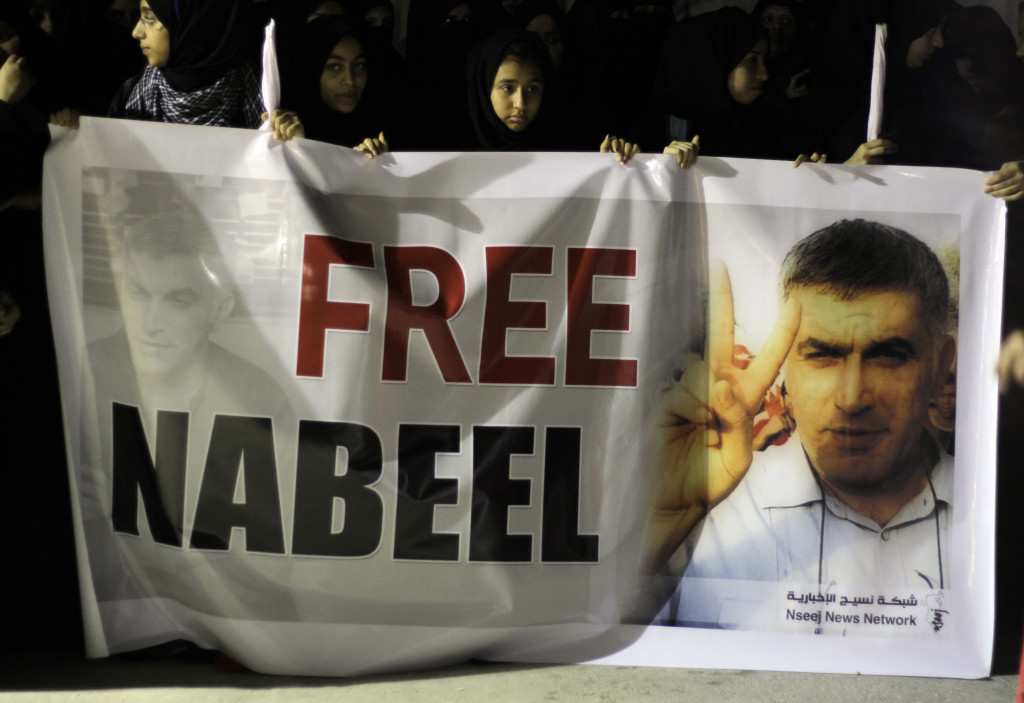
Supporters of jailed Baharini human rights activist Nabeel Rajab hold up a banner demanding his freedom Sunday, May 6, 2012, in the northwestern village of Bani Jamra, Bahrain. AP
Tomorrow is November 29, an important deadline to those following the case of Nabeel Rajab, the Bahraini human rights activist and opposition leader who has tested Bahrain’s stated commitment to political reform.
Rajab was arrested at the Bahrain International airport on May 5, 2012 and tried the following day on charges that he incited illegal rallies and marches on social networking websites. Bahraini law provides for early prison release on grounds of good behavior after three-quarters of a sentence served—that means that Nabeel’s case, this would be tomorrow, November 29.
“Protesters would come to these demonstrations with weapons and Molotov cocktails in hand as a result of his speeches.” – Sameera Rajab, Bahrain Minister of State for Information Affairs
Along with human rights defender Abdulhadi al-Khawaja, Rajab established the Bahrain Center for Human Rights in 2002. He was very outspoken in his criticism of the government crackdown on protesters at Manama’s Lulu Roundabout in February 2011, which left four dead and 300 wounded.
Rajab is considered a pioneer in the use of Twitter, Facebook and other social media as outlets for protest–and in his absence, his accounts are being maintained–actively–by friends and supporters.
Bahrain’s Minister of State for Information Affairs has said Rajab’s three-year prison sentence was legitimate and that police acted according to the law when they arrested him. Sameera Rajab, no known relation, says the evidence is clear: Rajab incited violence and planned to protest in Manama in a move to “cripple the country’s economy.”
However, the United Nations Human Rights Council’s Working Group on Arbitrary Detention (UNWGAD) has designated Rajab’s detention as arbitrary, in violation of the Universal Declaration of Human Rights and the International Covenant on Civil and Political Rights. UNWGAD has called for his release and that he be compensated for his ordeal.
The Working Group’s decision was adopted May 3, 2013, but Rajab’s lawyer, Mohammed Al Jishi, has only just received the news. “This is a great victory!” Al Jishi wrote me. ” This may be useful in support for the call for the early release of Nabeel.”
Amnesty International calls Rajab a “prisoner of conscience” and is calling for his immediate release. Hassiba Hadj Sahraoui, Amnesty’s Middle East and North Africa Deputy Director, says that if Bahrain doesn’t release Rajab, then as far as he is concerned, it is “crystal clear”: Bahrain jailed him not because he broke any laws, but simply to silence him.
U.S. Rep. Jim McGovern (D-MA) recently highlighted Rajab’s case in a speech before Congress (see video, below), urging the Bahrain government to release Rajab November 29 and to make no further threats against him and other non-violent human rights and opposition leaders.
